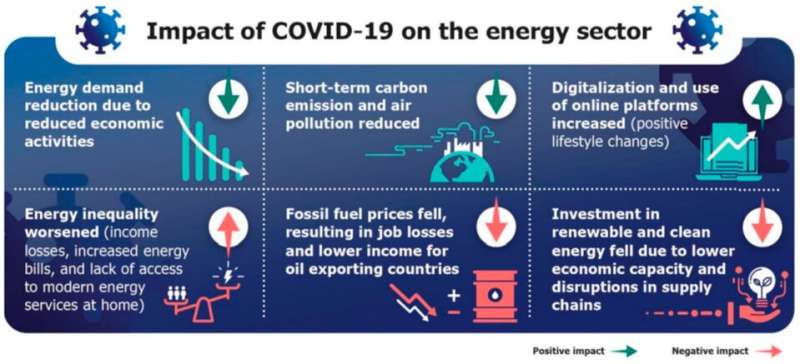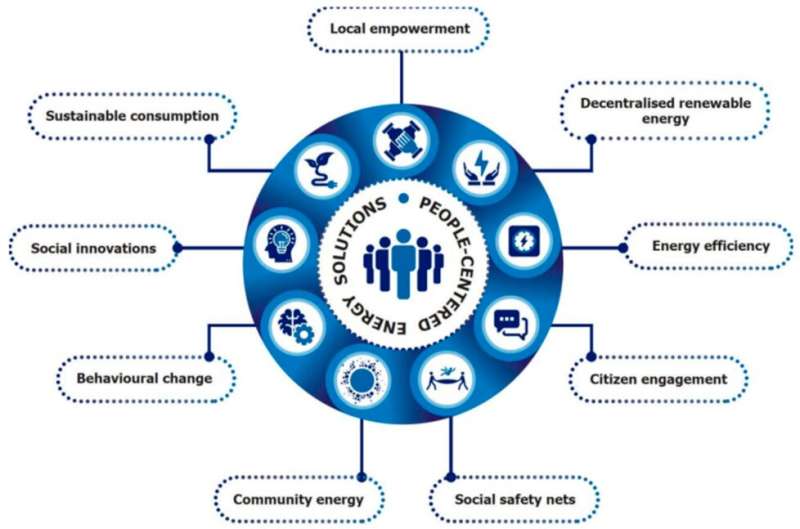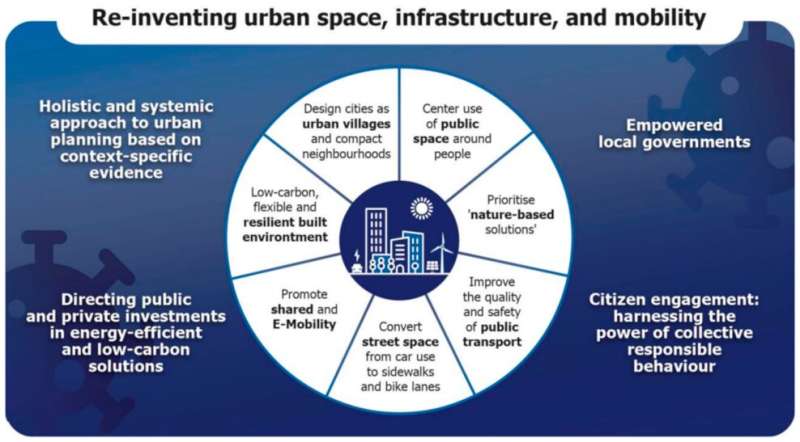Blessing or curse? How the pandemic and the war impact energy transitions

The rapid spread of the coronavirus has caused deep-reaching and unprecedented changes in every aspect of society, the energy sector being no exception. Travel reductions, changing work arrangements, and altered consumption patterns significantly affected energy markets, with crude oil demand and energy prices falling in tandem. As the most immediate effects of the pandemic are slowly wearing off, the outbreak of armed conflict in Europe has exposed the vulnerability of the global energy system from a different angle. Price hikes and looming shortages have thrust questions of energy security and fossil fuel dependency into the limelight.
An IIASA-led study published in Energies investigates the impact of these two events in more detail and discusses their short- and long-term implications for low-carbon energy transitions and sustainable development. While moments of crisis can bring about lasting change, the authors find that the current crises largely represent missed opportunities, with governments around the world relying more on short-term, risky alternatives rather than focusing on long-term sustainable solutions.
Due to reduced investment capacities and lower workforce availability, Europe saw a 10–15% drop in new investments in clean energy projects compared to pre-pandemic figures, short-term increases in renewable-based electricity production notwithstanding. Similarly, while several countries with a high dependency on fossil fuel imports have made pledges to accelerate their clean energy transition in response to the Russia-Ukraine conflict, the fossil fuel industry is one of its main beneficiaries.
Record profits and surging gas prices have stimulated investments in finding new resources and developing gas fields, for example, in Mediterranean offshore sites and in the Middle East. In addition, price hikes coupled with inflation significantly hamper the capacity of governments in developing regions to invest in clean energy plans, furthering their dependency on oil and gas. The combined effect of these trends, the authors contend, could create lock-in effects that may take decades to get rid of.

“The current energy crisis is mainly due to the dependency of nations on fossil fuels, including their highly geopolitical and volatile international markets. Without pressure on policymakers to phase out such fuels altogether instead of creating new supply routes, the public sentiment against these energy sources may not translate into climate-friendly energy transitions,” says Behnam Zakeri, the study’s lead author and a researcher in the Integrated Assessment and Climate Change Research Group of the IIASA Energy, Climate, and Environment Program.
To improve the resilience of the energy system against global disruptions and enable a sustainable energy transition, the researchers put forward four policy recommendations:
- Rethinking consumption: transforming energy demand and the concept of consumption toward responsible, sustainable, and sufficient ways of meeting human needs.
- Reinventing urban space, infrastructure, and mobility: designing cities as urban, digitalized villages featuring compact neighborhoods with access to essential services within a short distance, thereby reducing car dependency and promoting shared mobility services for different target groups, including under-served low-income populations, and promoting e-mobility and energy efficiency in the transport sector.
- Promoting decentralized, community-based energy systems: reducing or eliminating fossil fuel subsidies, diversifying investments in low-carbon assets, prioritizing decentralized energy solutions, promoting community-based governance and business models, among other measures.
- Ensuring a just energy transition: expanding and strengthening energy safety nets and ensuring accessibility for vulnerable low-income populations, setting up programs to guide off-grid companies to protect and support customers, and providing financial assistance for energy access companies.

In addition to the lost opportunities these crises represent for the energy system, their effects will be felt in all areas of society if governments and businesses continue their path.
“Our energy system today is unsustainable. If our energy system is unsustainable, the knock-on effects across the economy and social and environmental systems are severe, with great negative implications for the achievements of both the Paris Agreement and Agenda 2030,” concludes IIASA Emeritus Research Scholar Luis Gomez-Echeverri, a coauthor of the study.
UN urges ‘complete transformation’ of global energy system
Behnam Zakeri et al, Pandemic, War, and Global Energy Transitions, Energies (2022). DOI: 10.3390/en15176114
Provided by
IIASA
Citation:
Blessing or curse? How the pandemic and the war impact energy transitions (2022, October 17)
retrieved 17 October 2022
from https://techxplore.com/news/2022-10-curse-pandemic-war-impact-energy.html
This document is subject to copyright. Apart from any fair dealing for the purpose of private study or research, no
part may be reproduced without the written permission. The content is provided for information purposes only.
For all the latest Technology News Click Here
For the latest news and updates, follow us on Google News.
